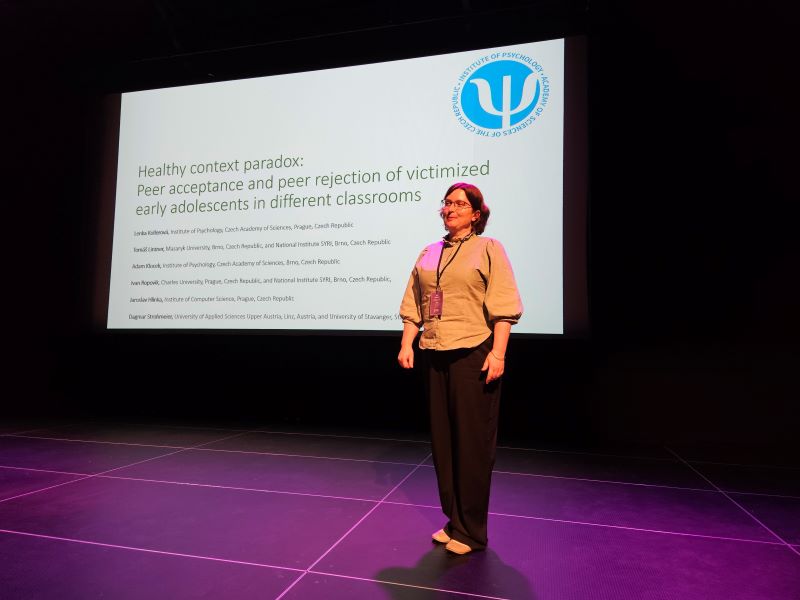Lenka Kollerová and Adam Klocek, members of our research team, had the opportunity to present their work at the prestigious ECDP 2023 (European Conference on Developmental Psychology), which took place this year in Turku, Finland, from 28 August to 1 September 2023. Both papers at the ECDP 2023 conference were warmly received by the expert audience and we received important feedback and new ideas in the follow-up discussions.

Contribution 1
Lenka presented a paper on the phenomenon known as the “paradox of healthy context”. This paradox predicts that in classrooms with higher rates of bullying, the most bullied students will do slightly better than in classrooms with lower rates of bullying. To shed light on this phenomenon, we used a combination of more classical mixed model analysis and social network analysis, which allows us to both test the model that appears in the previous literature and to look beneath the surface of each individual classroom and the dynamics of the ties between individual students. The results of the mixed-model analysis suggest that the effect of individual bullying on peer acceptance or rejection is indeed less pronounced in classrooms with a higher incidence of bullying.
Contribution 2
Adam presented a paper focusing on “unboxing” the helpful and risky mechanisms that can play a role in implementing a KiVa anti-bullying program. Study fromcollege presented a paper dedicated to exploring the phenomenon known as the “healthy context paradox”. This paradox posits that in classrooms where bullying is more prevalent, the most bullied students will fare slightly better than in classrooms where bullying rates are lower. To shed light on this phenomenon, we used a combination of more classical mixed model analysis and social network analysis, which allows us to both test the model that appears in the previous literature and to look beneath the surface of each individual classroom and the dynamics of the ties between individual students. The results of the mixed-model analysis suggest that the effect of individual bullying on peer acceptance or rejection is indeed less pronounced in classrooms with a higher incidence of bullying. umala the effect of the intervention on relationships between various factors such as positive changes in attitudes toward bullying, social self-esteem, and students’ sense of belonging in school. The results show that similar mechanisms are activated in the intervention and control groups. The KiVa intervention better activated defensive behaviour and pupils’ wellbeing was a more important factor in the overall network of variables than in control schools. The vicious circle of victimisation and bullying was more likely to emerge for pupils in the intervention group, but this phenomenon can be explained by the greater degree of sensitisation of pupils who were more likely to discuss the issue of bullying in KiVa lessons.